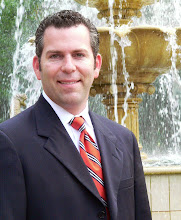
PORT-AU-PRINCE – We’re in! After a struggle to reach Port-au-Prince, Tony, our video producer, and I were finally able to get two seats on a plane from the Dominican Republic. It was a tiny “4-seater” and was so full of relief gear that it tipped back on its tail before we took off.

Approaching PAP airport was a hairy experience; planes were circling the airport like a swarm of flies. The pilot asked us to keep an eye out for other aircraft and at times we had to do ’stomach in throat’ maneuvers to avoid crossing paths. After 3 aborted landings because of runway traffic we finally touched down and work commenced.

Our Haiti National Director, Eric, met us and took us over to a light aircraft hangar that will serve as our base over the next few days.
The first thing we needed to do was secure water and food for the team; it was extremely hot and we would have become dehydrated very quickly, and a sick aid worker is useless. We also needed to secure more vehicles as our relief efforts are set to quickly expand over the coming days.
We left the relative security of the airport and ventured out into the streets of Port-au-Prince. We were instantly met with horrific scenes as injured Haitians were lining the pavement desperately trying to receive medical attention almost 68 hours since the quake hit.

At a visit to the UN compound for a coordination meeting, I saw another glimpse into the horrendous pain of this quake when we drove past a huge emergency tent full of quake victims struggling for life.

Many Haitians on the streets are wearing coverings over their mouths and noses to hide the pungent smell of death that lingers in the air. People are carrying belongings along the streets in suitcases or on their head. There seems to be quite a migration of people from what is left of the city.

Every day the humanitarian situation grows worse for the survivors.
In the heat, people are desperate for water and that is causing them to drink unsafe water from wherever they can find it. We saw some small children bathing in and drinking a muddy puddle. As the desperation among the survivors grows, so does the anxiety and frustration.
There is a very real concern among aid groups of increasing violence and theft on the streets, but today the streets were calm for us and we can only hope that as the relief efforts ramp up, the tensions will drop.
This has been one of the most difficult launches to a disaster that I have experienced and that is due to the severity of the quake coupled with the lack of infrastructure. But the delays at the airport are a sign that the world is reaching out to Haiti like never before.
Huge C130 Cargo planes have been arriving all day long from the U.S. and tonight some of those planes were being used to evacuate hundreds of American citizens. Cargo planes from other countries such as Israel, Mexico and Canada were dropping massive piles of food, essential relief items and rescue teams.

The Spanish rescue team that we have been shuttling into the quake zone came back with disappointing news that they had only found dead bodies today and most rescuers are suggesting that due to the intense heat it is very unlikely any more survivors will be found.

Saturday morning, Operation Blessing will be delivering our first batch of essential medicines to the hospitals where work is still continuing around the clock to save the lives of injured victims. We are expecting the first team of Israeli doctors to arrive from our partner IsraAid, and as soon as they hit the ground we hope to have them working.
We have 5 water purification units en route from the U.S., each one capable of purifying 10,000 gallons of clean drinking water every day. We did an assessment in a badly damaged neighborhood on the outskirts of the city and are gearing up for emergency food distributions and medical clinics staged out of a damaged primary school that is out of commission for the near future.

I just ate a U.S. military Ready-to-Eat meal (MRE) and hope to sleep soon. My mat and sleeping bag on the hangar floor will not be too uncomfortable, but huge cargo planes roaring down the runway just a few hundred yards away might make for another long night.
 I'm headed up to New York City Saturday with a team of students and leaders, and I sense that it is going to be a significant time. And all the hip-techno types around me (I'm tragically unhip) tell me I must chronicle this trip with pictures and timely words. So back to my neglected blog.
I'm headed up to New York City Saturday with a team of students and leaders, and I sense that it is going to be a significant time. And all the hip-techno types around me (I'm tragically unhip) tell me I must chronicle this trip with pictures and timely words. So back to my neglected blog. 
















